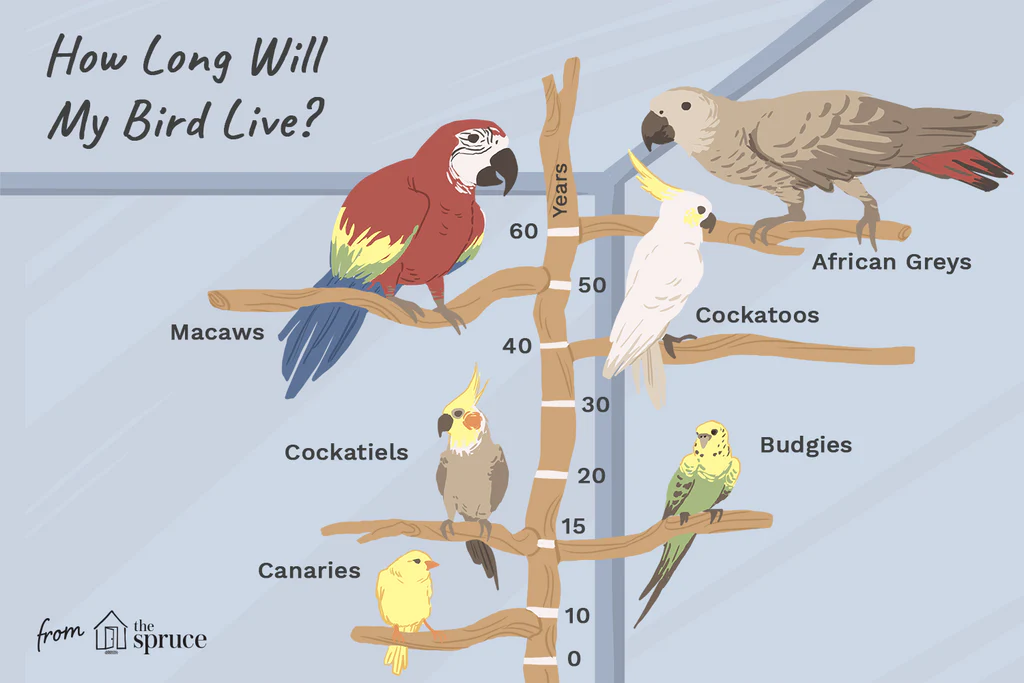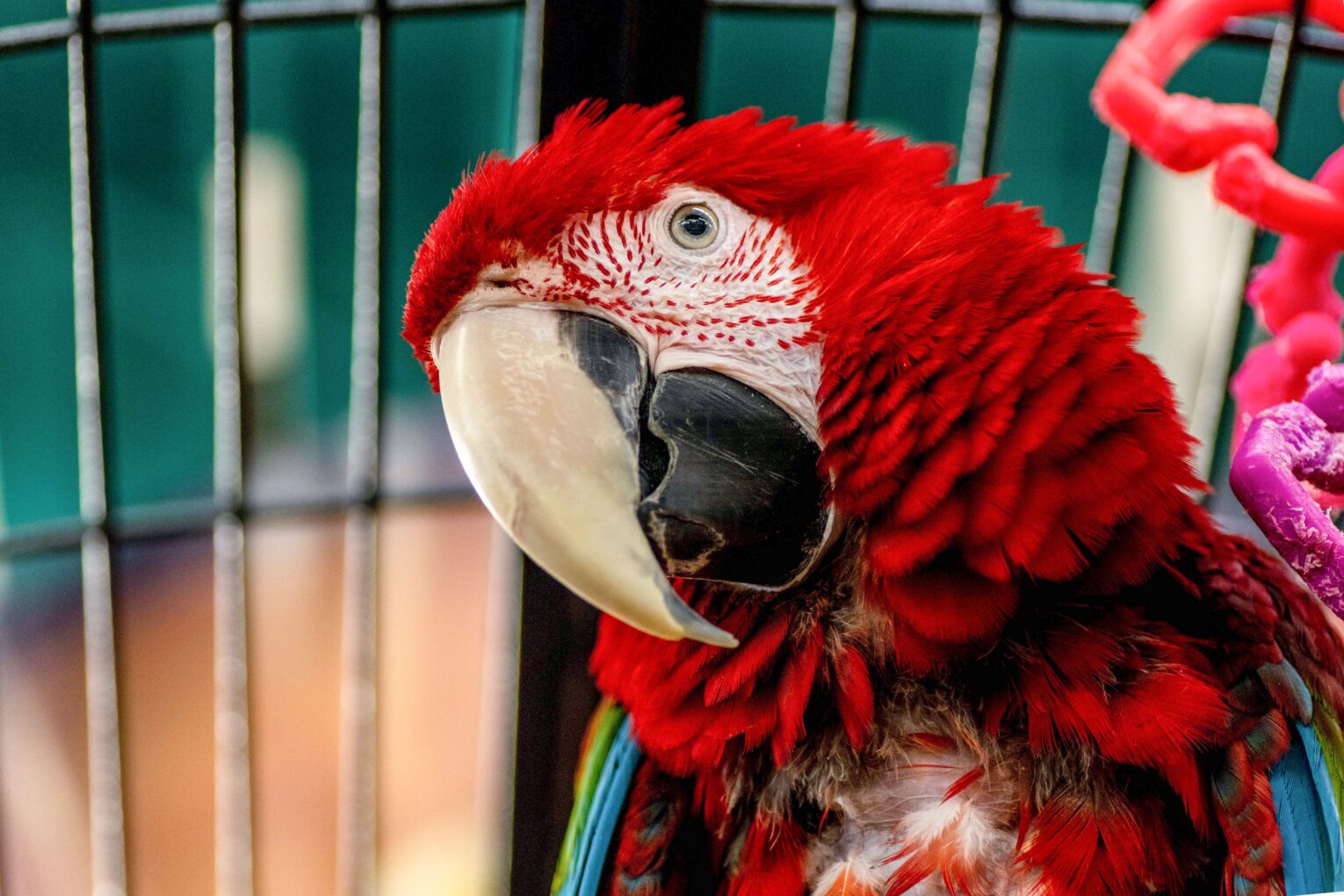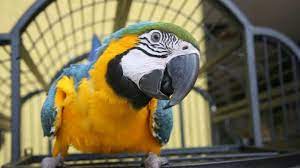
Welcome to the fascinating world of parrots, a realm where vibrant colors meet equally vibrant personalities. Parrots, with their striking plumage, remarkable intelligence, and often uncanny ability to mimic human speech, have soared in popularity as pets. These feathered companions offer more than just beauty; they bring a unique blend of companionship, entertainment, and challenge to the lives of their owners.
In this blog, we delve into the important topic of parrot lifespans. Understanding how long your feathered friend might live is not just a matter of curiosity but a crucial aspect of responsible pet ownership. The lifespan of parrots is influenced by a myriad of factors ranging from species and genetics to diet, environment, and quality of care.
As we explore these factors, our aim is to provide a comprehensive overview that not only enlightens but also prepares potential and current parrot owners for the commitment involved. Owning a parrot is not a short-term responsibility. Some species can live for several decades, with the oldest recorded parrots reaching ages well into their 80s and even 90s. This longevity demands a significant commitment in terms of time, emotional investment, and resources.
Throughout this blog, we’ll highlight key aspects that impact a parrot’s lifespan, from dietary needs and exercise to mental stimulation and veterinary care. Whether you’re considering bringing a parrot into your home or are already sharing your life with one, understanding these factors is crucial in providing your avian companion with a long, healthy, and happy life.
So, join us as we embark on this journey to understand the remarkable lifespans of these incredible creatures and how we, as caretakers, can positively influence them. Our goal is to equip you with the knowledge and insights needed to ensure the best possible care for your parrot, every step of the way.

Species-Specific Lifespan Overview
Parrots, with their diverse species, offer a wide range of lifespans. From the majestic Macaws to the charming Cockatiels, each species has its own unique longevity, influenced significantly by genetics and environmental factors. In this section, we provide a detailed breakdown of the average lifespans of some popular parrot species and discuss the role of genetics and the differences between wild and captive lifespans.
African Grey Parrot
- Average Lifespan: African Grey Parrots are known for their long lifespans, often living between 40 to 60 years in captivity, with some reaching up to 80 years under optimal care.
- Genetics and Lifespan: Their longevity is partly attributed to their genetics, which predispose them to long lives when coupled with a healthy environment and diet.
- Wild vs. Captive: In the wild, their lifespans may be shorter due to predators, food scarcity, and environmental stresses, whereas a safe and nurtured environment in captivity can extend their life.
- Average Lifespan: Macaws, one of the largest parrot species, can have particularly long lifespans. On average, they live between 50 to 70 years, and some species like the Blue and Gold Macaw can live beyond 70 years in captivity.
- Genetic Factors: Their robust genetics contribute significantly to their longevity, especially when supported by proper nutrition and care.
- Comparison of Lifespans: While wild Macaws face threats like habitat loss and predation, in captivity, with the absence of such threats and with regular veterinary care, their lifespans are generally longer.
Cockatiel
- Average Lifespan: Cockatiels have a shorter lifespan compared to larger parrots, typically living between 15 to 20 years in captivity.
- Role of Genetics: Their genetic makeup determines a shorter natural lifespan, but factors like diet and environment play a crucial role in achieving their lifespan potential.
- Wild vs. Captive Lifespan: In the wild, Cockatiels may have shorter lives due to environmental challenges. In contrast, a stable and enriched captive environment can maximize their lifespan.
Other Popular Species
- Budgerigar (Budgie): Usually live about 5 to 10 years, but can reach up to 15 years with excellent care.
- Amazon Parrot: Known to live between 40 to 70 years.
- Conure: Smaller species like the Sun Conure typically live around 15 to 20 years.
The Role of Genetics in Lifespan
Genetics play a foundational role in determining the potential lifespan of a parrot. However, this genetic potential can only be realized through optimal care, including proper nutrition, mental and physical stimulation, and regular veterinary check-ups.
Wild vs. Captive Lifespans
In the wild, parrots face various challenges that can impact their lifespan, such as predators, disease, and food scarcity. In captivity, many of these threats are mitigated, allowing parrots to often live longer. However, captive birds rely entirely on their human caretakers for their needs, making the quality of care a determining factor in their lifespan.
In summary, understanding the lifespan of your parrot species is crucial in preparing for the commitment required to care for them. While genetics set the stage, it’s the environment, diet, and overall care that truly shape their longevity. Whether you have a large Macaw or a small Budgie, each day with them is an opportunity to positively impact their life and wellbeing.
Key Factors Influencing Parrot Longevity
The lifespan of a parrot is not just a matter of genetics but is significantly influenced by several key factors. These include diet, environment, mental stimulation, and healthcare. Understanding and optimizing these areas can greatly extend a parrot’s lifespan, ensuring they not only live longer but also enjoy a higher quality of life. Let’s delve into each of these factors and how they impact parrot longevity.
Diet
- Balanced Nutrition: A diet that closely mirrors what parrots eat in the wild is crucial. This includes a variety of fresh fruits and vegetables, high-quality pellets, and a limited amount of seeds and nuts.
- Avoiding Toxic Foods: Certain foods that are harmful to parrots, such as avocado, chocolate, and caffeine, should be strictly avoided.
- Supplementation: Depending on the species and individual health needs, some parrots may benefit from dietary supplements, but this should always be under a vet’s guidance.
Environment
- Safe and Comfortable Habitat: Parrots need a spacious cage or aviary where they can fly and exercise. The environment should be free from hazards such as toxic fumes, unsafe toys, and open water sources.
- Temperature and Humidity: Maintaining a comfortable and stable temperature and humidity level that mimics their natural habitat helps in reducing stress and preventing respiratory issues.
Mental Stimulation
- Enrichment: Parrots are highly intelligent and need constant mental stimulation to prevent boredom and stress, which can lead to health issues. Toys, puzzles, and regular interaction are essential.
- Social Interaction: Regular socialization with humans or other birds helps in keeping them mentally healthy. Isolation can lead to depression and self-harming behaviors like feather plucking.
Healthcare
- Regular Veterinary Check-ups: Routine check-ups with an avian veterinarian are crucial for early detection and treatment of health issues.
- Preventative Care: Vaccinations, parasite control, and regular screenings are part of preventative care that can extend a parrot’s life.
- Prompt Treatment of Illnesses: Early intervention in case of illness is critical, as birds often hide their symptoms until they are quite ill.
Common Health Issues Affecting Lifespan
- Nutritional Deficiencies: Issues like vitamin A deficiency can lead to a range of health problems.
- Obesity: A common problem in captive birds, leading to heart disease, diabetes, and other complications.
- Respiratory Problems: Often caused by poor air quality or environmental conditions.
- Liver and Kidney Diseases: Can be influenced by diet and environmental factors.
Proper Care and Its Impact
Proper care that encompasses all these aspects can significantly extend a parrot’s life. By providing a balanced diet, a safe and stimulating environment, regular healthcare, and mental enrichment, parrot owners can greatly enhance the well-being and longevity of their feathered companions.
Nutritional Needs for a Healthy Life
Proper nutrition is a cornerstone of parrot health and longevity. The right diet not only fuels their day-to-day activities but also plays a critical role in preventing diseases and ensuring a long, healthy life. This guide offers a detailed look into the nutritional needs of parrots, outlines recommended diets for various species, and provides tips for maintaining a balanced diet.
Understanding Nutrition and Its Impact
Balanced Diet: Parrots require a diet that includes a variety of nutrients such as proteins, carbohydrates, fats, vitamins, and minerals. The right balance is crucial for their overall health, affecting everything from feather quality to immune system strength.
Dietary Requirements: These vary significantly across parrot species. For example, African Greys have higher calcium needs, while Amazon Parrots are more prone to obesity and require careful monitoring of their food intake.
Impact on Health: A poor diet can lead to numerous health issues in parrots, including obesity, malnutrition, and vitamin deficiencies, each of which can significantly shorten their lifespan.
Recommended Diets for Different Parrot Species
African Grey Parrots: High-calcium foods like leafy greens, along with a balanced pellet diet and a variety of fruits and vegetables.
Macaws: Require a higher fat content in their diet, which can be provided through nuts and seeds, in addition to pellets and fresh produce.
Cockatiels and Budgerigars (Budgies): A lean diet primarily consisting of pellets and fresh fruits and vegetables, with seeds and nuts given sparingly to avoid obesity.
Amazon Parrots: Prone to weight gain, so a diet low in fat and high in vegetables is recommended, along with portion-controlled pellets.
Tips for Maintaining a Balanced Diet
Variety is Key: Ensure the diet includes a wide range of fresh fruits and vegetables to provide different vitamins and minerals. Offer a mix of colors and textures to keep your parrot interested.
- Monitor Portion Sizes: Overfeeding can lead to obesity, especially in less active, captive birds. Be mindful of portion sizes and the calorie content of foods.
- Limit High-Fat Foods: While some fats are necessary, too much can cause health problems. Nuts and seeds should be given in moderation.
- Regular Health Checks: Regular consultations with an avian veterinarian can help tailor the diet to your parrot’s specific needs, especially if there are health concerns like obesity or nutrient deficiencies.
- Avoid Toxic Foods: Certain foods are harmful to parrots, including avocado, chocolate, caffeine, and alcohol. Also, avoid foods high in sugar and salt.
Maximizing Your Parrot’s Lifespan
Caring for a parrot is a journey filled with joy, learning, and companionship. Throughout this journey, one of your primary goals is to maximize your parrot’s lifespan, ensuring they live a long, healthy, and fulfilling life. Let’s recap the key takeaways that can help you achieve this and provide some encouragement and resources for continued learning and support in your role as a responsible parrot caretaker.Summary of Key Takeaways
- Balanced Nutrition: Providing a diet that suits your parrot’s specific species needs is fundamental. This includes a mix of high-quality pellets, fresh fruits and vegetables, and an appropriate amount of seeds and nuts.
- Mental and Physical Stimulation: Parrots thrive on mental challenges and physical activities. Regular interaction, playtime, and a variety of toys keep them engaged and prevent behavioral issues.
- Regular Veterinary Care: Routine check-ups with an avian vet are crucial for early detection and treatment of potential health issues.
- Safe and Comfortable Environment: A secure and stimulating environment free from hazards is vital. This includes a spacious cage, safe toys, and an escape-proof space.
- Socialization and Training: Regular socialization and training are key to a well-adjusted, happy parrot. Positive reinforcement techniques should be used for training.
- Understanding and Patience: Parrots are complex creatures with unique personalities. Understanding their needs and behaviors requires patience and dedication.
Encouragement for Responsible Parrot Care
Caring for a parrot is a significant commitment that should not be taken lightly. It requires time, patience, and a willingness to learn and adapt. Remember, the effort and love you invest in your parrot’s care will be reflected in their health, behavior, and the strong bond you will share. Celebrate the small victories in training, cherish the moments of affection, and be attentive to your parrot’s changing needs as they age.Resources for Further Learning and Support
- Avian Veterinarians: Building a relationship with a qualified avian veterinarian is invaluable for personalized advice and care.
- Books and Online Resources: There are numerous books and online articles that provide detailed information on parrot care, health, and behavior.
- Parrot Care Forums and Communities: Online forums and local bird clubs can be great resources for support and advice from experienced parrot owners.
- Workshops and Seminars: Look for workshops, webinars, or seminars hosted by avian experts. These can be excellent opportunities to learn more about advanced care and training techniques.

FAQs on Parrot Lifespans
1. Why do parrots live so long compared to other birds?
- Parrots have a slow metabolism and a complex social structure, which in natural environments contributes to longer lifespans. Additionally, being intelligent creatures, their social and mental complexity might be linked to their longevity.
2. What is the average lifespan of an African Grey Parrot?
- African Grey Parrots are one of the longest-living parrot species, with an average lifespan of 40 to 60 years in captivity, and some individuals living up to 80 years with excellent care.
3. How long do Macaws typically live?
- Macaws have a long lifespan, with many species living between 50 to 70 years, and some individuals, like the Blue and Gold Macaw, can live beyond 70 years in a well-maintained, stress-free captive environment.
4. What is the expected lifespan of a Budgerigar (Budgie)?
- Budgerigars, or Budgies, generally live for about 5 to 10 years, although with optimal care, they can live up to 15 years.
5. How long can Cockatiels live?
- Cockatiels have a lifespan of about 15 to 20 years in captivity, with some living even longer under ideal care conditions.
6. Can parrots live longer in captivity than in the wild?
- Yes, in captivity, parrots are often protected from predators, have a consistent food supply, and receive regular veterinary care, all of which can contribute to a longer lifespan compared to their wild counterparts.
7. Do smaller parrot species have shorter lifespans?
- Generally, smaller parrot species like Lovebirds and Parakeets have shorter lifespans than larger species, usually ranging from 10 to 20 years in captivity.
8. How does diet affect a parrot’s lifespan?
- Diet plays a crucial role in a parrot’s health and lifespan. A balanced diet rich in nutrients helps prevent obesity and diseases, thereby potentially extending their lifespan.
9. What are some common health issues that affect a parrot’s lifespan?
- Common health issues that can impact a parrot’s lifespan include obesity, malnutrition, respiratory diseases, and psychological issues like stress and depression.
10. How can I help my parrot live a longer, healthier life? – Provide a balanced diet, regular exercise, mental stimulation, and social interaction. Ensure a safe and clean living environment and schedule regular check-ups with an avian veterinarian. Avoiding stress and recognizing health issues early are also key factors.
